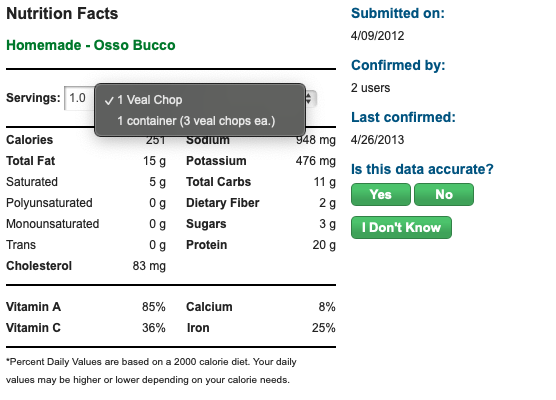Keeping a Food Journal
PostedI never kept a food journal but I am starting to keep one now. My system is composed of me, a text file and my phone.
It’s simple. It’s great.
Why food logging?
Good question. I don’t understand why other people log their food. I only know why I’m doing it.
Yet even with my no-frills approach, ten seconds to record what I ate is still a long time. But it’s still way better than the alternatives which require much more involvement, mental energy and annoyances.
There are three reasons why one would go down this path:
- As a response to a medical diagnosis1
- To align with a sport or athletic activity
- Purely a lifestyle choice

Hypothetical conversation with a much younger version of myself
"Who even cares?"
There are some comparisons to sleep tracking yet sleep tracking is relatively painless: you’re’ asleep when it happens, and when you wake up, it’s done.
With food logging however, one needs to interrupt the very act of eating food to be any good at it.
What about using an app?
The tools are still quite awful when it comes to data entry. Nothing ruins the experience of a meal like having to navigate a series of search boxes, drop-down menus, or form fields just to commence the thing that you need to do.

Adding entries on a popular nutrition app really takes you out of the moment
Does it matter if it came with gravy?
More modern tools promise image recognition as a way to solve the data entry problem but I don’t buy it.
I used OpenAI’s most recent gpt-4-vision-preview model2 myself to do this thus I
am speaking from some experience here. Visual identification is impressive, but not yet perfect.
But it’s imperfections are the problem. When data entry fails, you are back at square one correcting data, spending mental energy on what went wrong or apologizing to your dining companions. And rather than drop-downs and form fields, you might need to instruct the AI what they got wrong. (“For the last time, that’s not ice cream. It’s ranch dressing!”)
I once tried it, and it was terrible
The early aughts were when folks really started logging everything and putting everything online. Sites like Mint promised freedom from personal bookkeeping.3 Other startups went one step further to turn all your activities into one big giant feed.4
It was in this era that sites crowdsourced food databases and monetized users by tracking calories, steps, and other health-related data.
With food logging apps, privacy often comes secondary to capturing your data5, and portability is a problem. Even if you can export your data, is it in a form that makes sense?
On a related note, how many moments were ruined by people taking a picture of the food when the waiter (or your host) presented it to you?
Taking a photo of your food was fine 5-10 years ago. We were all getting used to how everything worked but nowadays it just feels weird: “Sorry, I need to snap a picture of this lasagna before we eat. Oh it’s not for me, it’s for this… app?”
Then I went with plain text
I decided to give food logging another go with a text file, jotting down what I ate and the meal with a few simple rules:
- I don’t sweat the details on ingredients.
- If I can specify the portion, great. If not, use language that makes sense to me.
- Meal names are optional.
- Make it human-readable first.
I’m taking a few cues from my use of plain text accounting trying to keep the philosophy simple:
- Avoid tools that enforce how to log what I eat.
- Use tools to work with the data after I’ve entered it.
I’ll write a future post on what this looks like in practice.
I consider this a broad category, including anything from weight control to diet restrictions. This is also a category where the tools needed to do the job require exactness (e.g., ‘sodium intake’). ↩︎
I’ve had very positive experiences with OpenAI’s vision preview. It’s great. ↩︎
I never used those free financial planning tools, but [mint.com][https://en.wikipedia.org/wiki/Intuit_Mint#Sale] was pretty enticing. I could never get past the idea that a third party should get all my data. ↩︎
Blippy was both ridiculous and not ridiculous enough. They seemingly didn’t care about exposing private purchase behavior to the public, and I’m glad they shut down. I know some people who were shocked to find their data posted online without ever knowing they signed up. ↩︎
I recently tried an AI-based app to track food entirely via WhatsApp & it wouldn’t let me continue without a birthdate and my gender. I’m always surprised when a product requires private details before any value is delivered– this must break a cardinal rule of product design. ↩︎